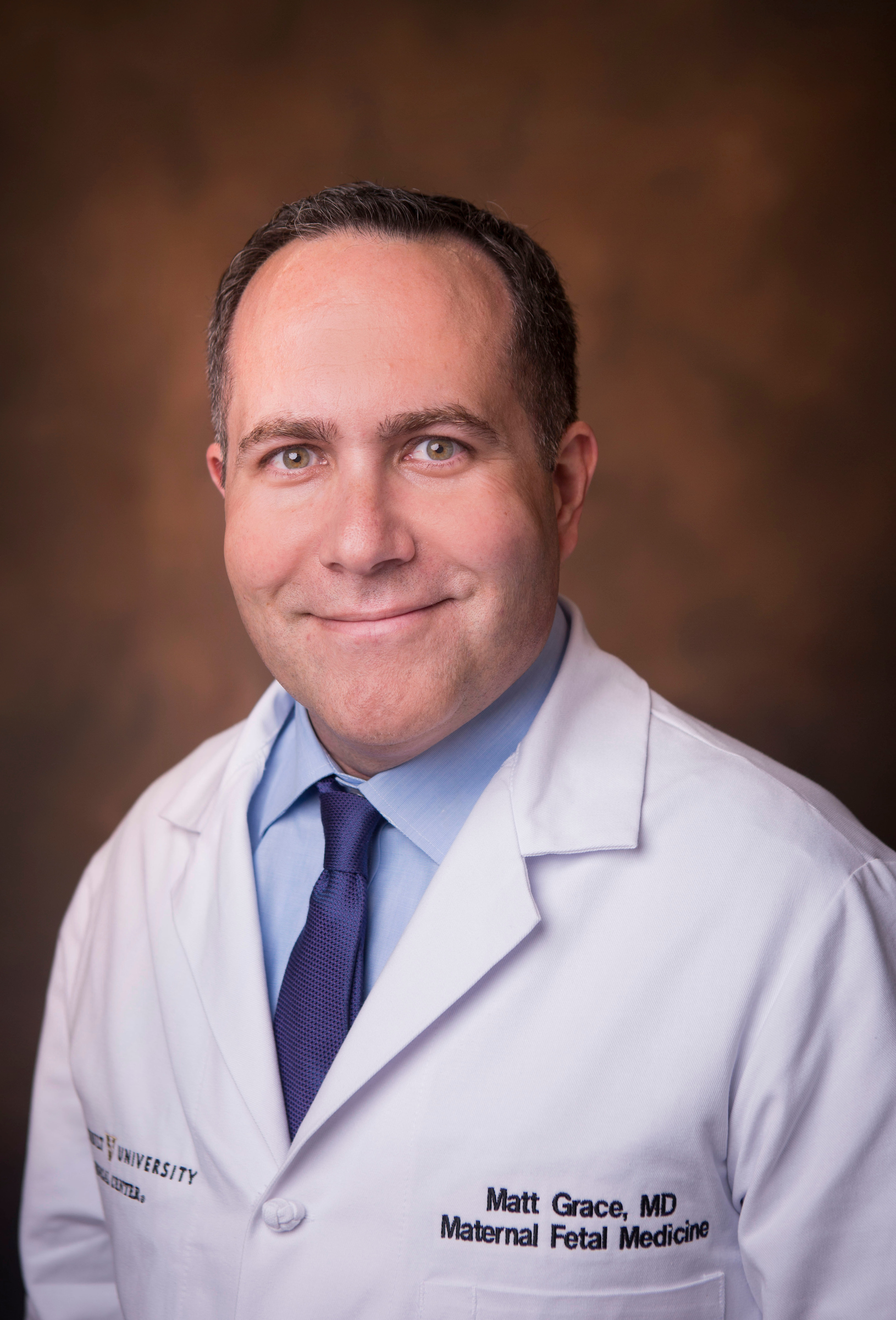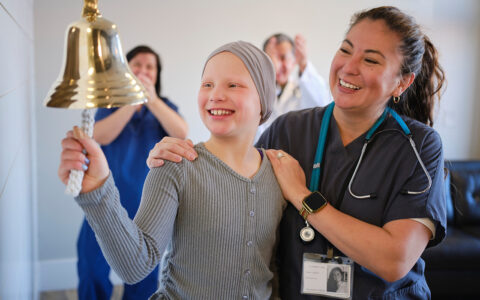Genetic screening can provide valuable information for patients during pregnancy, but a new publication advises caution when ordering new tests – and the importance of counseling before and after screening.
The paper, published in Obstetrical and Gynecological Survey, examines the benefits and challenges of one such test: cell-free DNA (cfDNA) screening for single-gene disorders. Among the paper’s authors are Brighton Goodhue, certified genetic counselor and associate at VUMC’s Department of Obstetrics and Gynecology, and Matthew R. Grace, M.D., with the department’s division of maternal fetal medicine.
“As a genetic counselor, I deal with cell-free DNA screening regularly,” Goodhue said. “But for some physicians and many patients, the technology is far less familiar. Our intention was to share knowledge about a niche type of testing,”
The paper focuses on strategies for best use of cfDNA screening, including instances of when it should and should not be used.
Types of cfDNA screening
Although the paper focuses on single-gene disorders, cfDNA screening is widely used for other conditions, including the chromosome-number abnormalities seen in Down syndrome.
“That test is well known as a reliable tool for non-invasive prenatal screening,” said Goodhue.
The most frequently used version of the test for single-gene disorders can evaluate 30 genes that cause 25 skeletal, cardiac, and developmental disorders, including achondroplasia and Noonan syndrome. Ultrasound exams and family history can provide clues that the screening may be useful, although in many cases these disorders are de novo – without family history.
“The gold standard is a diagnostic test,” Goodhue said.
“These tests such as amniocentesis and chorionic villus sampling are generally done later in the pregnancy. They are invasive and carry some risk. Patients often want to get information without that risk.”
Cell-free DNA screening can be performed as early as nine weeks and is noninvasive. Because placental cells are shed into the mother’s bloodstream, the screening can be done via a maternal blood sample.
Counseling and Confirmation
Medical organizations such as the American College of Obstetricians and Gynecologists and the Society for Maternal-Fetal Medicine do not currently recommend routine use of cfDNA screening for single-gene disorders. As more data becomes available on predictive value and validation, these recommendations could be revised.
Nonetheless, if a patient is in a potential risk category for a condition covered by the screening, the results can provide information and potentially help with a presumptive diagnosis.
A recent iteration of the test includes screening for fetal red blood cell antigens, as well as autosomal recessive conditions, such as cystic fibrosis and sickle cell disease. In these conditions, both parents must be carriers to pass on the condition. Goodhue explained that this testing is useful even when the father is not involved nor present.
However, since screening for recessive conditions with cell-free DNA technology is relatively new, data is still far from complete on long-term reliability.
“OB/GYN doctors don’t have genetic counsellors in their own practice. We aim to be a resource they can reach out to before ordering a test.”
“We’re still learning when it’s appropriate and beneficial to use that testing and what some of the limitations may be,” Goodhue said, adding that counseling becomes even more important in these instances and that a positive screen must always be confirmed by clinical diagnostic testing.
According to Grace, a specialist in maternal-fetal medicine, commercial labs have a number of tests that can be ordered by physicians during pregnancy.
“But OB/GYN doctors in the community usually don’t have genetic counsellors in their own practice,” he added. “We aim to be a resource they can reach out to before ordering a test. Test results and their interpretation can cause a great deal of stress for the patient, or can falsely reassure them.”
Reproductive genetic counsellors like those at Vanderbilt offer their services both before and after screening and are skilled at translating complex subjects in a patient-friendly way.
“It’s incumbent upon physicians to educate themselves about what tests are available and what the limitations are, and to make use of resources such as counsellors,” Grace said.





